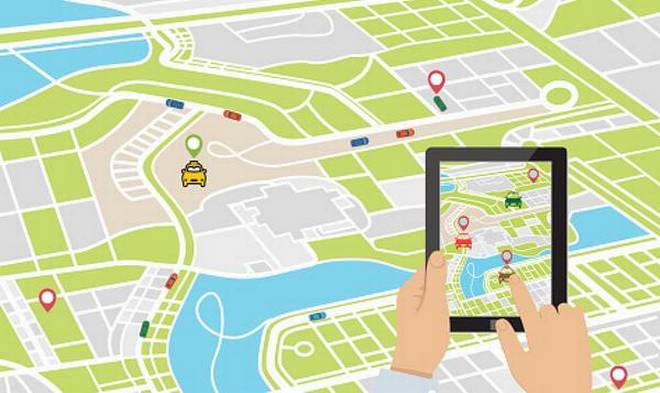1,700 vehicles. 17,000 users. 24 to 36 shifts. To ensure its transport services run like a well-oiled machine, this Bengaluru-based company had to be on top of these numbers, every working day of its organisational life. For that purpose, thirty members of the transportation department were entrusted with the job of creating trip charts manually, using spreadsheets. Of course, there was also the job of keeping a record of monthly payments for drivers and regular vehicle check-ups.
But, all of these constituted only half the challenge. The other half was encountered on the road.
The corporate house then let technology tackle these challenges for it.
Route optimisation
There are now companies that offer technology-based solutions for mobility-related challenges faced by corporates.
MoveInSync, Routematic, HopOn and Cubito are some of them.
With the help of SaaS, they provide route optimisation software that provide details of routes to be taken by the driver and location updates, send SOS alerts and offer the option of a panic button. Using algorithms, they increase occupancy of a vehicle, thereby reducing the number of vehicles hitting the road.
“We use a routing app that is connected to the cloud and provides information on the driver, pick-up and drop time and the best route they can take based on traffic conditions. Organisations are allowed to monitor each of these trips,” says Surajit Das, co-founder and CEO, Routematic, which works with clients in six Indian cities.
Lower transport costs
Das says by adopting technology they have helped companies cut down on transport costs by 18-40% and saved travel time by 15 to 18 minutes.
“According to our study, close to 55% of employees opt for company-provided transport; this percentage further increases for KPO companies,” he says.
MoveInSync works across 19 cities and with a client list that includes Google, Microsoft, Amazon, AT&T, Oracle, Wipro, HSBC and Deutsche Bank.
According to a study conducted by MoveInSync, an MNC with operations in Hyderabad found fleet utilisation increase by 20%, following introduction of technology based on route optimisation. The number of employees using office-provided vehicles went up by 4%; and the average travel time for each employee reduced by 12%.
Started as a car-pooling initiative in 2012, HopOn is now providing analytics-based transport solutions for corporates.
“When we handle end-to-end solutions of an employer, we track the on-time performance of the employee’s commute,” says Arvind Krishnaswamy, business head, HopOn.
Employee’s on-time
Along the lines of drivers’ driving behaviours being tracked and ranked, employee’s on-time is tracked to check whether he/she is responsible for the delay. Some are habitual late-comers and based on our data, companies take action, says Krishnaswamy.
Almost 40% of Capgemini’s employees across six places in India where it is present, use sRide, a carpooling app platform, says Dayakar Reddy, executive vice president and head-corporate Real Estate Services – India and APAC, Capgemini.
Additional services
Besides transport solutions, some of these companies also run their own fleet of vehicles for their clients. They do background check of drivers before hiring them. MoveInSync started to provide cabs and drivers to smaller firms.
“Early this year, we launched our own fleet of vehicles in Pune that cater to 15,000 employees. This way we also manage client experience better,” says Das.
Companies go the extra mile
There are now companies that incentivise employees to get them to go in for public transport as well as environment-conscious travel options. These companies also create systems that facilitate the use of these options.
For example, ThoughtWorks offers a 50% reimbursement on employees’ travel expenses every month if two or more employees car pool or cab-pool to work.
The company has also created an in-house car pooling app where ThoughtWorkers willing to offer rides to their colleagues enter in their home-to-office route and work timings.
“Other ThoughtWorkers using the app can join any of these rides along their home-to-office route. The app shows seat availability on a real-time basis,” says Kaushik Ghosh, people head, ThoughtWorks India.
Unisys brought in electric cars to meet the transport needs of its employees.
Unisys uses its networking page – Yammer – to encourage its employees to carpool.
“We have also hired women drivers through transport vendors, to bring more diversity and provide opportunities for women,” says Ajit Pillai, director, Facilities, Unisys India.
Many offices in Gurugram and Mumbai have introduced staggered office timings to help their employees peak rush hour traffic.








